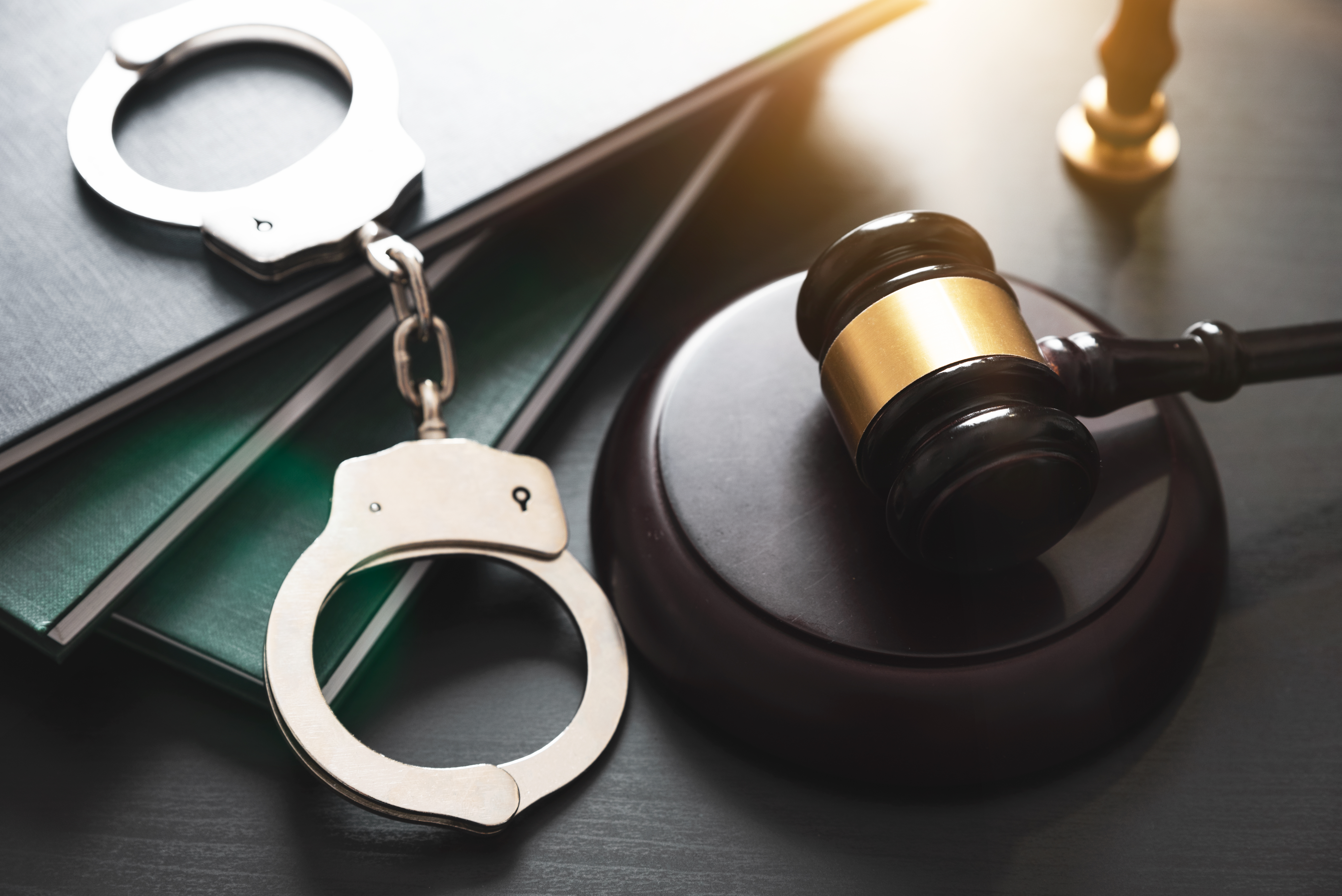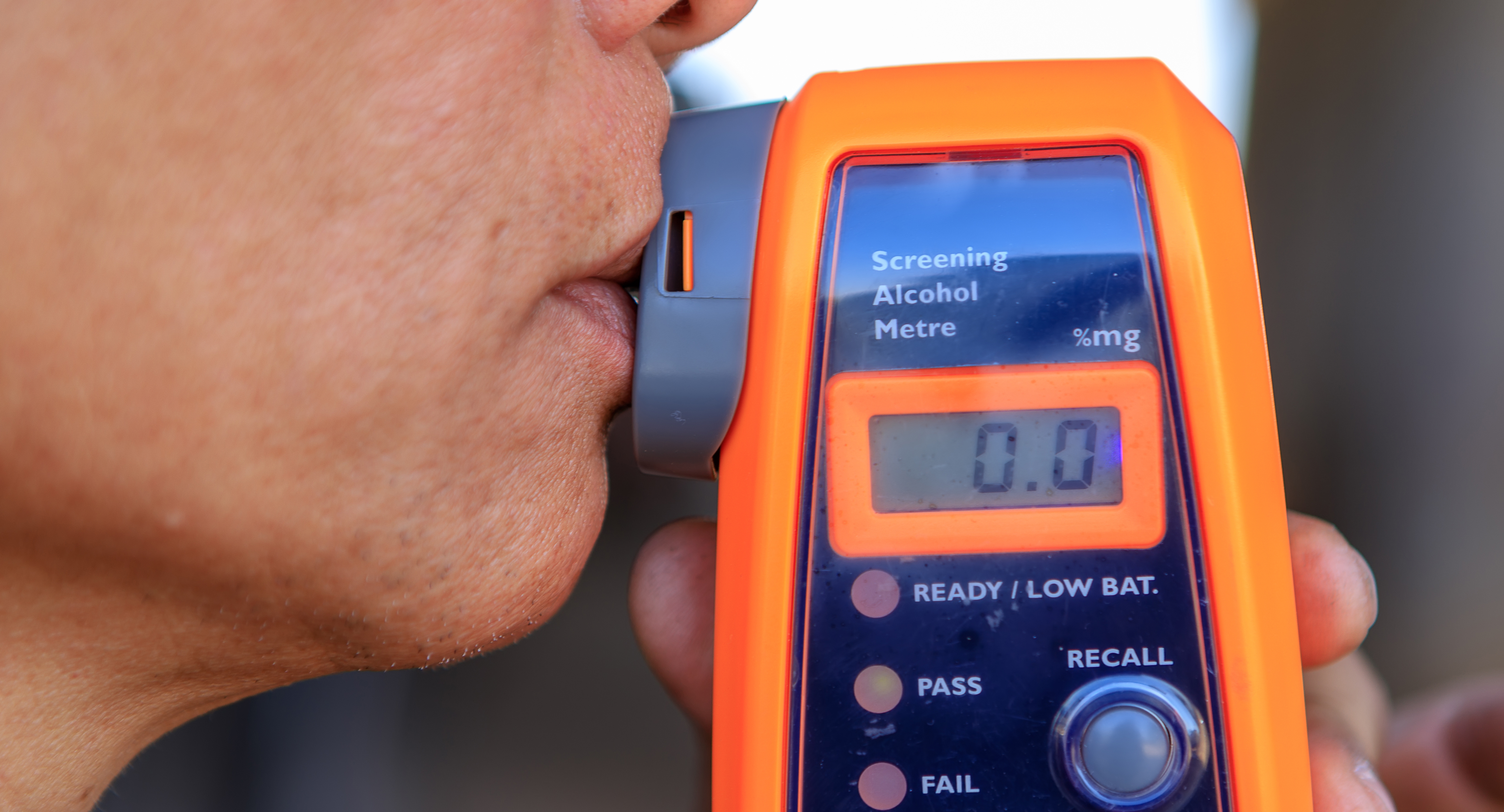When you’re pulled over for DWI, it’s never too soon to start protecting yourself.
Within about 15 seconds of your first interaction with police, the officer has made up his mind about whether to arrest you. The actions you take during those first few minutes can make or break their case against you.
Here’s some straight talk about DWI in Texas and how to beat the charges.
DWI Requires “Intoxication” or a BAC of .08%
Texas defines intoxication as either one of these two criteria:
- Not having the normal use of mental or physical faculties due to the consumption of alcohol or any other controlled substance
- Having a blood alcohol concentration of 0.08 or more.
A BAC of .08 is actually not a lot for many people. Our metabolisms react differently to alcohol, yet there’s one arbitrary number that’s consistently used to determine whether or not you’re “intoxicated.”
It’s possible that even though you haven’t had a drink for a couple of hours or you feel completely sober, you could test above the legal limit.
The Police Officer Isn’t Your Friend
DWI and DUI in Texas are serious offenses, and even if you haven’t done anything wrong, there are steps you can take to protect yourself.
Police officers are trained to extract information from you, and you often don’t even realize it.
They will often open the conversation with leading questions, like:
- “Do you know why I pulled you over?”
- “Do you know how fast you were going?”
- “Where are you coming from?”
- “Have you been drinking tonight?”
This is psychological manipulation. The questions are designed to trick drivers into providing information that can be used against them. Don’t offer any unnecessary information.
Interacting with Police Officers: Be Polite But Firm
Don’t be confrontational or snarky. If you anger the police officer for no good reason, he or she is simply more likely to make your life difficult.
When you are pulled over, you are obligated to provide:
- Your name
- Your address
- Your date of birth
- Your driver’s license and proof of insurance
You also must exit the car if the officer requests it.
Don’t Answer Questions
You do not have to answer any questions, and we recommend that you politely inform the officer that you don’t wish to speak further without an attorney present.
Say something along the lines of, “My friend is a lawyer, and he told me that I should never answer questions from the police without an attorney present.”
After that, ask the officer if you’re being detained. Press for a yes or no answer.
- If they tell you no, ask if you may leave
- If they say yes, say, “Then I would like to speak with my lawyer,” and then refuse to answer any more questions or even speak from that point on. No matter what the cop says or threatens you with, from the moment that you have been officially detained, you should remain completely silent until you see your lawyer. You are under no legal obligation to say anything after you have been detained and requested to speak with your lawyer.
Detained vs. Arrested
Being detained doesn’t necessarily mean you’ve been arrested, so if the officer doesn’t specifically tell you that you’re under arrest and place you in handcuffs, you must clarify your status.
Don’t answer any police questions. Most people believe that police must read their Miranda rights as soon as they’ve been arrested, but that’s technically not the case.
The law states that police officers must read you your Miranda rights before questioning you after an arrest.
Here are the distinctions in Texas:
- Detained: This means police have reasonable suspicion that you’ve committed a crime. Police officers don’t have to read your Miranda rights before questioning you, and what you say can be used against you in court.
- Arrested: Police officers must have probable cause (sufficient evidence) to believe a crime has been committed. Officers must read you your Miranda rights before questioning you. Any questions you answer will be inadmissible in court if they fail to do this. However, any information you offer voluntarily can be used against you. So remember, don’t say anything!
- In custody: Anyone arrested has also been taken into custody. However, you can still be “in custody” without an arrest. If you’ve been lawfully detained, it may meet the custody requirement.
Notifying you of your Miranda rights applies specifically to police questioning while in custody (or “custodial interrogation”). However, some police officers intentionally delay an arrest while attempting to gather evidence of probable cause.
If you aren’t certain whether the questions you answered were asked before or after your DWI arrest, we may be able to have these statements excluded from evidence during a trial.
This is why we recommend using your phone to record your interactions with police.
What Happens If You’re Arrested for DWI
After your arrest, you’ll be taken to the police station for booking.
At that point, you’ll need to decide whether to consent to a blood test.
You may also be offered a choice between a blood test and a breath test. If you refuse to comply with the testing, you risk a 90-day driver’s license suspension.
However, what the cops don’t tell you is even if you fully comply with the testing, your license will likely be suspended anyway, as long as they can show the court evidence of your intoxication.
If your license is suspended, your lawyer can most likely obtain an Occupational License within just a few weeks that will act as a temporary driver’s permit and allow you to continue driving even during the suspension period.
READ MORE: Texas driver’s license suspension
Blood Testing Options
Officers will then contact a judge to request a search warrant, allowing them to forcibly obtain a sample. The testing will likely be inevitable, but it’s possible a delay could impact your test results. This means that if you were close to .08 at the time of arrest but two hours elapsed between your arrest and the blood test, you may end up testing below the legal limit.
Because of the potential delay, I recommend choosing blood testing.
However, some of my colleagues at Michael & Associates disagree. They counter that breath testing is notoriously inaccurate (results from two back-to-back tests can vary by as much as 25%), and your results can be affected by various medical conditions, including diabetes or prescription inhaler. Even an unfortunately timed burp can change your result.
Ultimately, you should weigh the pros and cons of both options – if you’re even given a choice.
Once police obtain a warrant, don’t protest the blood draw. They can (and will) take it by force if necessary.
READ MORE: What is implied consent in Texas?
What You Need to Do After Your Arrest
The process doesn’t end with your arrest. Once you’re taken to the police station, you’ll need to contact an attorney. Ask for a phone call. If you cannot get ahold of your attorney, try calling friends or family to notify them of your arrest so they can begin the process of finding a lawyer for you.
Never Plead Guilty Before You Talk to an Attorney
After your arrest, you’ll be brought before a magistrate. You’ll probably be asked to enter a plea, and then your bail will be set.
This can sometimes happen quickly, and you may not have had time to thoroughly discuss your case with an attorney, or you may be dealing with a frazzled and overworked public defender.
For these and many other reasons, we never recommend pleading guilty when you appear before a magistrate.
We have many different ways to challenge the case against you. However, if you choose to plead guilty at this point, almost all of these options will be off the table. You will automatically be convicted, you give up your right to a jury trial, the judge will determine your sentence, and your conviction will remain on your record for the rest of your life.
READ MORE: DUI vs. DWI – what’s the difference?
How to Post Bail
During the magistration process, your bail amount will be set. Ideally, you’ll be released on what’s known as Personal Recognizance. That means you don’t have to shell out any money as collateral that you’ll appear at trial. Personal Bonds are more common in some Texas jurisdictions than others.
Otherwise, bail can be as low as $500 or as high as $10,000 for a first offense. You can either pay the total amount and get your money back (minus court costs) when your case is resolved, or you’ll have to find a bail bondsman. These can get expensive. You’ll have to pay between 10% to 20% of the bond amount, which will not be refunded.
Bail bond companies can be shady. Some will offer payment plans with outrageous interest rates, while others resort to shady tactics to force you to pay more money. Ideally, you should ask your lawyer for a recommendation to a bail bonds company they trust and have done business with.
READ MORE: Types of bail bonds
Act Quickly to Protect Your Driving Privileges
After your arrest, you are still legally allowed to drive. However, the clock is ticking. There are a few things you can do to make your life easier.
Schedule an ALR Hearing within 15 Days
The next important step is to fight to maintain your driving privileges while your criminal case winds through the system.
To do that, you must request an Administrative License Revocation hearing within 15 days of your arrest. Otherwise, your driving privileges will be revoked about 40 days after your arrest.
During this hearing, the Department of Public Safety will argue that your license should be suspended. The police officer who arrested you will be sent a subpoena to testify.
If the police officer fails to appear, you automatically win. We recently had this happen at three different ALR hearings in a single week.
However, it can still be a valuable opportunity if the officer testifies. Our team will question details in the testimony and any inconsistencies in the police report.
ALR hearings are difficult to win because the burden of proof for DPS is lower than in a criminal case. However, our team at Michael & Associates has a success rate of more than 40%. That’s because our ALR team consists of attorneys who previously worked as DPS prosecutors. They’re meticulous and never miss an opportunity to spot a procedural error.
If the hearing doesn’t go in your favor, we can work to get you an occupational license, which will allow you to drive to and from work and complete essential household tasks.
How to Beat Your DWI in Texas
Most DWI cases don’t go to trial, particularly if it’s a first offense. Dismissal is our No. 1 goal, but if that isn’t possible, prosecutors typically offer alternative sentencing options, including probation or participation in a pre-trial diversion program. These allow you to stay out of jail and, depending on the type of probation or diversion program, possibly even avoid a conviction altogether.
Options include:
- Deferred adjudication probation
- Straight Probation
READ MORE: What are the chances of a DWI dismissal in Texas?
Misdemeanor DWI Penalties
The criminal penalties you face will depend on your charges. Most first DWIs are classified as misdemeanors.
Maximum penalties for conviction typically include:
- Up to 180 days in jail
- A fine of up to $2,000
- Driver’s license suspension up to one year
However, a good rule of thumb is that first-time offenders won’t end up with a jail sentence unless a client has a specific request or reason for not wanting to go through probation or a pre-trial diversion program.
Statistics: Average Outcomes of a First DWI in Texas
Here are the most common outcomes of all of the 2023 DWI cases in Bexar, Dallas, Harris, Tarrant, and Travis counties:
SOURCE: https://courtsdata.traviscountytx.gov/CriminalAnalytics/
READ MORE: What are the chances of a DWI dismissal in Texas?
Felony DWI Penalties
If your DWI is more serious (if you’re a third-time offender, for example,) you’ll face felony charges.
If you’re convicted, penalties range from:
- Between 2 and 10 years in prison
- A fine of up to $10,000
- Driver’s license suspension for up to 2 years
Statistics: Average Outcomes of a Felony DWI in Texas
These are the most common outcomes of felony DWI cases in Texas in 2023:
SOURCE: https://courtsdata.traviscountytx.gov/CriminalAnalytics/
We’re Never Afraid to Go to Trial
A trial is a last resort. We know you don’t want it to get to that point. However, sometimes you have to be willing to take the case to trial in order to get the best possible outcome.
The burden of proof is on the prosecution in Texas DWI cases. They must be able to prove beyond a reasonable doubt that you are guilty of every element of the crime, and the jury must unanimously agree.
Our team is never afraid to go to trial. We will use every possible resource to fight for you. That said, less than 1% of our cases have actually gone to trial.




